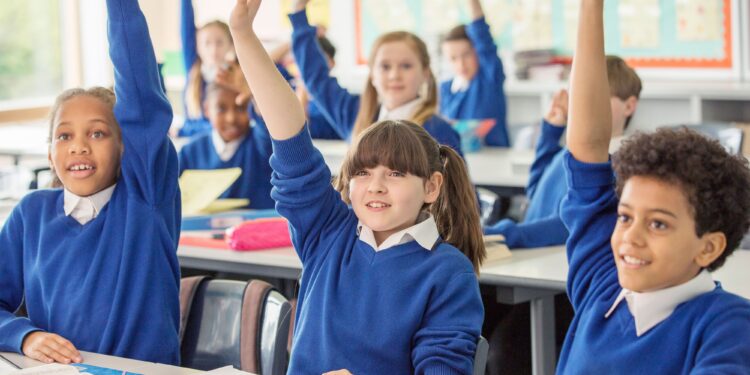By Gavin Mackintosh-
Hundreds of thousands of children still have their education being disrupted by the Omicron variant, it has been revealed.
Overall attendance rates have reportedly improved for the first time this term after the first substantial drop in the number of Covid-related absences seen since November.
The Department for Education attendance survey data estimates around 320,000 pupils-3.9% of the population, were absent for Covid-related reasons on February 3, down from 415,000, or 5.1 per cent, on January 20.
Of those off due to Covid, 250,000 had a confirmed case, down from 322,000, a record high, two weeks earlier. 34,000 were off with a suspected case, down from 52,000.
Other data depicts a state of affairs which got worse before starting to improve. On January 28, an estimated 444,900 children, or 5.4 per cent of the population, were off because of Covid. Overall, pupil attendance rose to 89.1 per cent on February 3, up from 87.4 per cent on January 20.
Secondary schools are still worse-affected by absences, with attendance of 86.2 per cent on February 3, compared to 91.9 per cent in primary schools.
Geoff Barton, general secretary of the ASCL school leaders’ union, said falling numbers was “good to see”, but warned the “major headache for many education leaders remains one of trying to plug the gaps left by having almost a tenth of their teaching staff absent”.
Covid-related absence rates among staff fell slightly last week, but the proportion of staff off for other reasons rose, leaving overall absences at around 9 per cent.
Staff absence also remains concentrated in some schools. Twenty-three per cent of state schools said they had more than 15 per cent of teachers and leaders absent on February 3, down slightly on two weeks before.
Barton said the staff absence situation left many schools with “no option other than to continue to spend more of their dwindling budgets on supply staff, assuming that suitable staff are available”.
Decreasing numbers of Covid-related absences seen last week represent a reversal of an upward trend since the beginning of the academic year, though absences did also decrease slightly in early November 2021, following the October half term.

